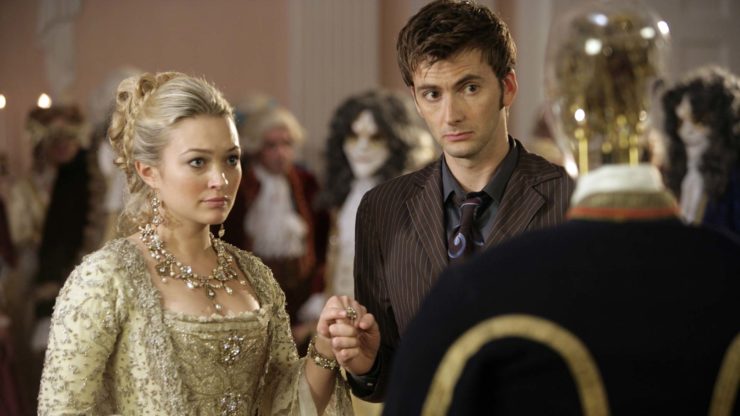A young girl watches as a strange man materializes in front of her. There is no logical explanation as to where (or when) he came from, but she’s not scared. He’s charming, he knows impossible things about the future and her future, and, best of all, he seems invested in knowing her. But this man is not a Time Lord. Before the Tenth Doctor crawled through Reinette’s fireplace in the 2006 Doctor Who episode “The Girl in the Fireplace,” or the Eleventh Doctor crashed his TARDIS in Amy Pond’s yard in 2010’s “Eleventh Hour,” it was Henry DeTamble who appeared to little Clare Abshire in the 2003 novel The Time Traveler’s Wife.
When it was announced that Audrey Niffenegger’s romantic novel was being adapted for television with Moffat the helm, the former Doctor Who showrunner mentioned that he had written “Fireplace” as “a direct response” to the book. It’s one of those episodes of Nu Who that I had always put off watching, so held up by fans as one of the series’ classics that it demanded complete attention. Well, I finally watched the Doctor meet Reinette a.k.a. Madame de Pompadour, and… I really hope this isn’t an indicator of what to expect from Moffat’s take on The Time Traveler’s Wife.
“The Girl in the Fireplace” is fine, but it is neither the brilliant nor swooningly romantic bit of storytelling that I was led to expect. A stranded spaceship with windows into various points in 18th-century France allows the Doctor (David Tennant) to step in and out of the life of Reinette, the ambitious “little queen” who will grow up to become the mistress of the king of France as well as an acclaimed actress, musician, courtesan, and gardener. But when he first meets Reinette, it’s to save her from the clockwork monsters lurking under her bed. After the Doctor dazzles her and slips back into his present, little does he realize that his next jaunt through the wall will bring him face-to-face with an adult Reinette (Sophia Myles), who has grown up loving and longing for her “lonely angel” to return.
Buy the Book
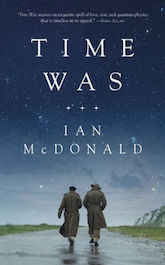

Time Was
The original idea for the episode, from then-showrunner Russell T. Davies, was to combine Madame de Pompadour and the Mechanical Turk; it was Moffat who added the dimension of the Doctor visiting Reinette like Henry with Clare, so that by the time Reinette was poised to become the Madame de Pompadour of history, her fate was tied up with the Time Lord’s. The problem is, Moffat tries to cram so much into 44 minutes of television that the only way to convince viewers of the legitimacy of this time-and-space-spanning love story is through narrative shortcuts and their sheer desire to be swept up in the romance.
Yes, there is Reinette’s years of fantasizing over the Doctor’s return, her heart caught between the king of France and the stranger in the fireplace. There is the Doctor’s thrilled and instantly quotable line of “I’m the Doctor, and I just snogged Madame de Pompadour!” There is the scene in which they step through the doors of each other’s minds, which I imagine was intended to speed up the connection since we had to get to the Act Three showdown sooner rather than later. There is even a truly romantic moment in which the Doctor smashes through a mirror (and the space-time continuum) on horseback to save Reinette, and—devastatingly—sentences himself to live in the past with her.
But these beats just don’t add up into a strong enough love story for me. The Doctor seems more besotted with Reinette’s prominent position within history than with her. And she is a woman to be admired, from her bravery in crossing over to the 51st-century spaceship and taking in the surreal technology and terrified screams of her future, to her ability to sum up the episode’s twisty time travel in a simple yet effective book metaphor. But, as both Reinette and the Doctor are well aware, there is just not enough time. By the point at which the Doctor carelessly pops back through the fireplace for a moment, only to re-enter decades later—at the exact instance a hearse is carrying her corpse from the palace—I felt only a flicker of regret for what could have been between them.
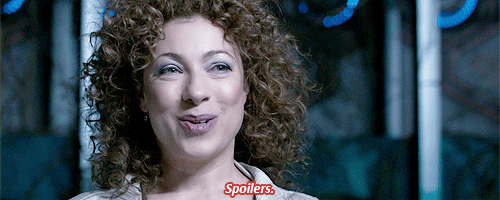
“The Girl in the Fireplace” was perfectly indicative of my disconnect with Moffat’s episodes. I’ve watched “The Day of the Doctor” and “The Angels Take Manhattan” through a blur of tears, caught up in an emotional catharsis that logically I know was not actually earned. Part of the problem is Moffat’s drive to be clever, especially where it concerns the women in the Doctor’s long, long life. While he has perfected his Time Traveler’s Wife riff with the Doctor’s dynamics with Amy Pond and especially with River Song (even subverting it, in her case), each iteration brings the mental exhaustion of steeling myself for yet another twist the viewers never see coming. It’s not enough for River to be the Doctor’s wife, she also has to be his killer. How many times can Amy forget her invisible friend, or be erased from history, or move heaven and earth to be reunited with her “raggedy Doctor”?
This is where I get worried—that after paying homage to Henry and Clare through these relationships, Moffat will be tempted to bring that cleverness to the reluctant time traveler and his lady companion. Even his official statement sounds coy: “It’s a story of happy ever after — but not necessarily in that order.”
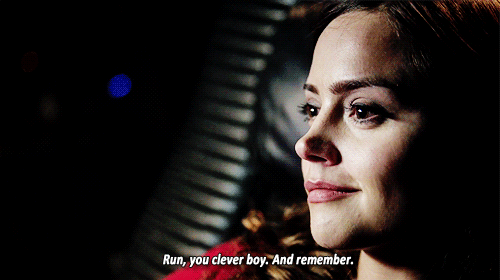
Clare doesn’t need to become a time-traveling archaeologist who scatters love notes for Henry through his timeline. Nor does she need to be revealed as some sort of “impossible girl,” infinite pieces of herself shattered throughout his adventures to provide warnings and hints. The demons that haunt their relationship are not constructed from cogs nor shrouded in forgetfulness. Instead, they are the anxiety of trusting in a future you are told, and the grief of only getting snatches of time with the love of your life, and the sheer, teeth-gritting creativity of making an unconventional life work.
I don’t intend to completely rag on Moffat. Listen, I have spent the last three years but mostly the last six months finishing a time travel play (parts of which have been directly influenced by both The Time Traveler’s Wife and Doctor Who) and have continually tripped myself up in my attempts to be clever. I wish I had thought up the Melody Pond/River Song reveal, or Clara’s ultimate purpose to exist everywhere and everywhen. But in both cases, these characters seem to exist as the punchline to some cosmic joke, the big reveal at the end of a magician’s act: They must either undergo a transformation, or be revealed to be someone/something else all along, in order to have an impact on the plot. Who they are must be a mystery that we must gleefully applaud upon its solving.
We already know who Henry and Clare are. They do not come to us in any sort of disguise, or with a regeneration up their sleeve, or somehow otherwise unfinished. Their lives are built on the many intersection points between their timelines: hers straight and pointing forward, his weaving in and out like a needle through cloth. Despite the time travel being a concrete dimension of the plot, its purpose hews closer to the original metaphor that Niffenegger thought up—dramatizing a relationship where one partner is always coming and going. Henry’s Chrono-Displacement is just one aspect (albeit a huge one) of his character, and one bit of baggage that he and Clare bring to the table.
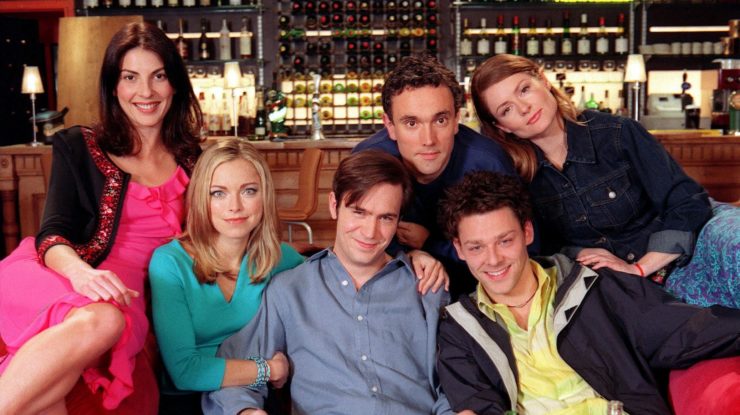
But I have hope for what Moffat can do with this. Because while compiling this piece, I remembered a wonderful bit of trivia: In addition to his work on Doctor Who and Sherlock, he also created Coupling. Yes, the UK contemporary to Friends and precursor to How I Met Your Mother, about a group of twentysomethings messily falling in love, neuroses and all.
I don’t need to see Moffat’s take on The Time Traveler’s Wife as a sci-fi story. I want to see his take on it as a love story.
“Nine and a Half Minutes,” one of my favorite episodes of any sitcom ever, retells the same span of time in one room from the perspectives of three different couples. Imagine putting that cleverness to work contrasting Clare and Henry’s drastically different experiences of key moments in their relationship. (Except, absolutely no jokes about being in “the John Hurt way.”) Or what about navigating already thorny relationship dilemmas once you throw in Chrono-Displacement! Is it really cheating if Clare sleeps with a past version of Henry who’s popped into the present? How do you define the relationship when it started 12 years ago for one of you but four months ago for the other? Just how ethical is it to nab winning lotto numbers for the future to buy your wife a studio for her art?
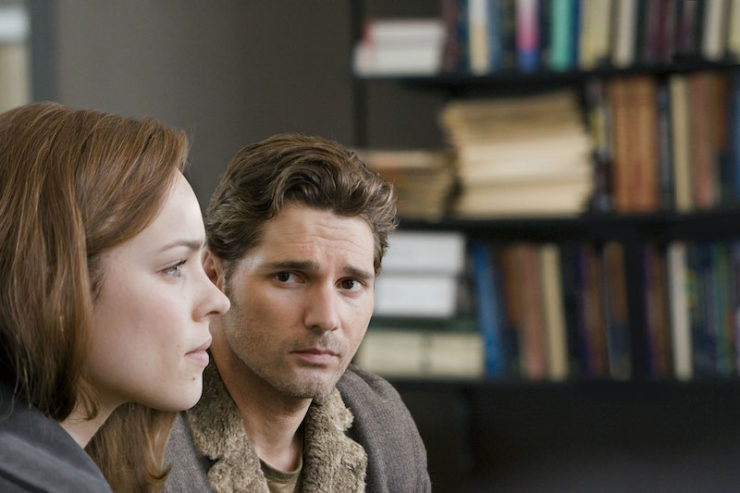
The 2009 movie had its magical moments but overall got really gloomy and, actually, gave me that same experience of sobbing in the theater even as I knew that I had been tricked into that reaction. While television provides so much more breathing room in which to tell the story, it also offers up the opportunity to tell it in a whole new way. It’s early stages, but HBO’s logline gives me hope:
An intricate and magical love story, adapted by Steven Moffat from the much loved novel by Audrey Niffenegger. The Time Traveler’s Wife tells the story of Clare and Henry, and a marriage with a problem… time travel.
A pretty young artist approaches an unsuspecting librarian at Chicago’s Newberry Library. She throws her arms around his neck, beaming like she’s known him all her life. This is the first time he has met her. He already has a girlfriend. She tells him she’s his wife.
Hilarity ensues.
All this said, Natalie Zutter does wish that an adaptation of The Time Traveler’s Wife could be told from the perspective of a female showrunner. Talk time travel love stories with her on Twitter!










